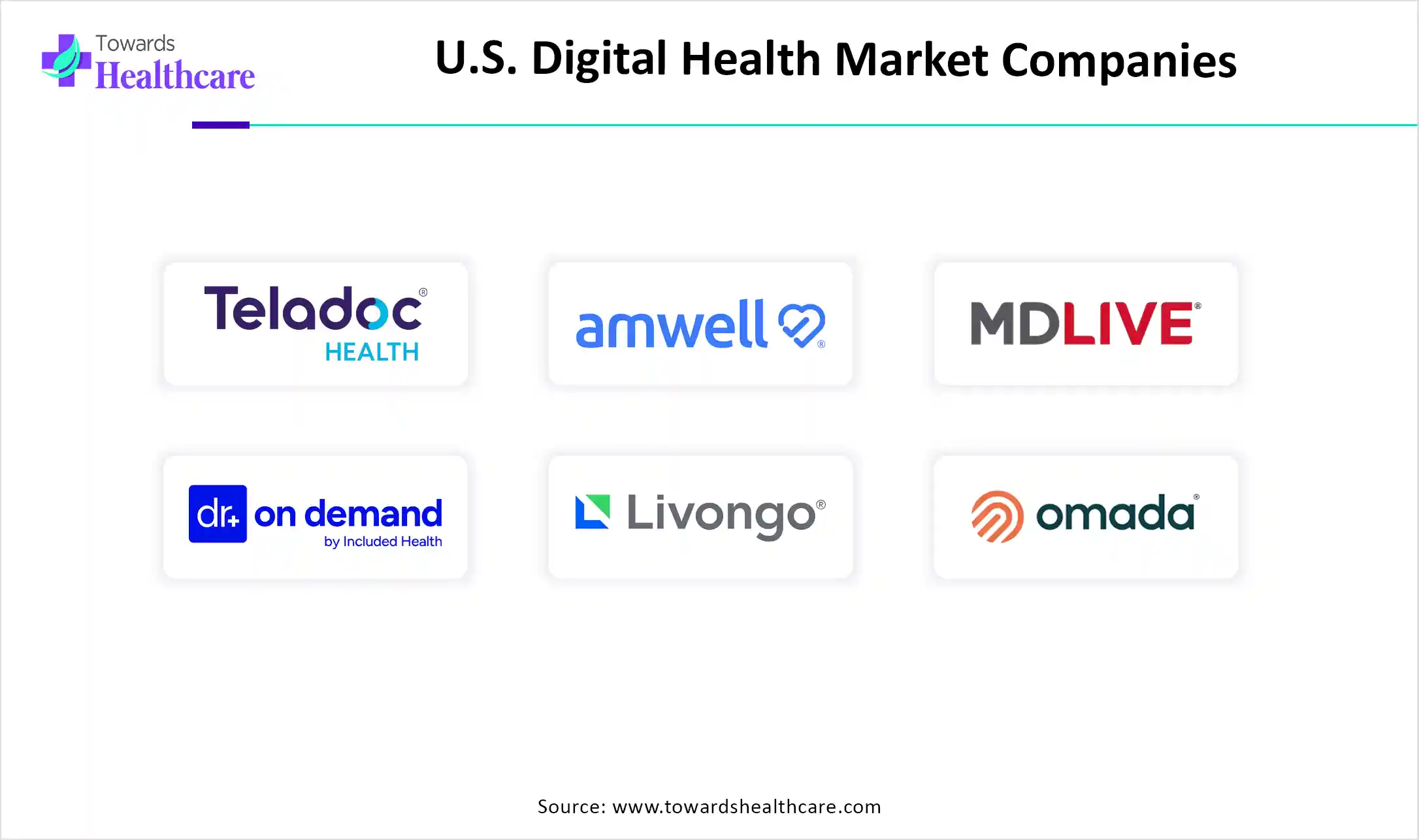
The U.S. digital health market is rapidly growing, with AI, telehealth, and innovative platforms enhancing patient care and efficiency. Leading firms like Teladoc, Apple Health, and Pfizer are driving this transformation.

The U.S. digital health market size recorded US$ 79.14 billion in 2024, set to grow to US$ 88.38 billion in 2025 and projected to hit nearly US$ 238.65 billion by 2034, with a CAGR of 11.67% throughout the forecast timeline.
Enhanced Healthcare Efficiency – Digital tools streamline administrative processes, patient scheduling, and data management, increasing efficiency and reducing costs for providers.
Integration of AI and Data Analytics – AI-driven tools enhance diagnostics, predictive healthcare, and personalized treatment plans, improving outcomes and operational efficiency.
Clinical trial-In the U.S., clinical trials are increasingly using digital health technologies (DHTs) like wearables, mobile apps, and electronic sensors to collect patient data, supporting decentralized and hybrid trial models. The FDA encourages DHT use to enhance data accuracy and patient engagement. Initiatives such as the Clinical Trials Transformation Initiative (CTTI) provide guidance, resources, and programs like the Digital Health Trials initiative to promote innovation and practical implementation of digital technologies in clinical research.
Regulatory Approvals- In the U.S., digital health products are regulated by the FDA, which classifies them based on risk and determines the appropriate approval pathway, such as 510(k) clearance, De Novo classification, or Premarket Approval (PMA). High-risk devices addressing serious conditions can benefit from the FDA’s Breakthrough Device Program, which accelerates review and market access for innovative and effective treatments.
Patient Support and Services- In the U.S., patient support in digital health includes mobile apps, wearables, and telehealth platforms that enable remote monitoring and personalized care. These tools collect real-time data, promote proactive health management, and enhance patient engagement. Core elements include communication platforms, health IT systems, and personalized medicine solutions, all designed to guide and support patients throughout their healthcare journey, improving outcomes and overall care experience.
In August 2024, in New York, Pfizer Inc. launched PfizerForAll, a digital platform aimed at simplifying healthcare access and wellness management for Americans. Aamir Malik, Pfizer’s EVP and Chief U.S. Commercial Officer, stated that the platform helps reduce information overload and healthcare decision challenges, streamlining access and improving health outcomes, particularly during the busy fall season.
Become a valued research partner with us, please feel free to contact us at sales@towardshealthcare.com